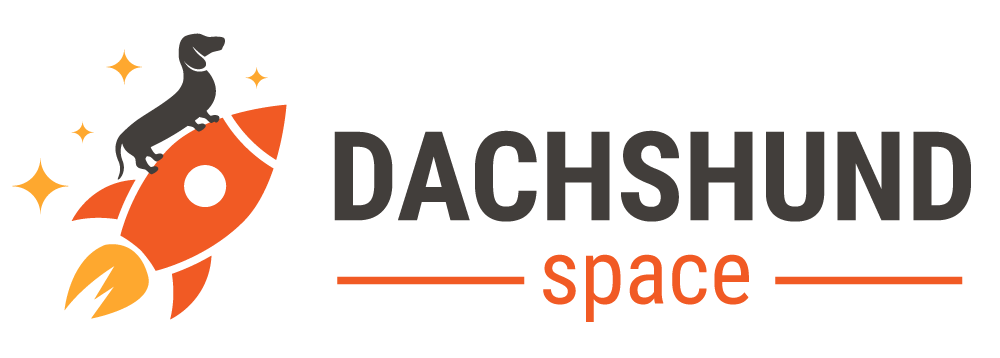If you’re thinking about to neuter your Dachshund then you’re in the right place. We will explore all the pros and cons of neutering a Dachshund and how to properly take care for your pet after the surgery. Even though this is a widely spread procedure, there are still things every dog owner should know.
What is Dachshund Neutering?
Neutering, also known as castration, involves the removal of a male dog’s testicles and is typically performed under general anesthesia. This common surgical procedure not only helps control the pet population but can also offer health and behavioral benefits. For Dachshunds, the procedure requires specific veterinary expertise due to their distinct body shape and size.
Pros of Dachshund Neutering
Health Benefits
Neutering a Dachshund can significantly reduce the risk of prostate disease and testicular cancer, common concerns in unneutered dogs. Besides, if you want to eliminate the possibility of fathering puppies, then this procedure is for your pet. Some studies have also shown that neutered Doxies live longer, so this is another benefit for your furry friend.
Behavioral Improvements
Neutered Doxies are less aggressive and are also less likely to roam and escape. Besides, they behave more friendly toward other dogs and will be less prone to fighting with other dogs. For Dachshund owners, this can mean a more manageable and less territorial pet. And, as we all know, Dachshunds can behave aggressively in certain situations. Therefore, neutering seems like the reasonable and also the best option for dog owners who don’t want to breed their dogs.
Lifestyle and Social Benefits
Neutering can make life easier for both the dog and its owner. Neutered Dachshunds are easier to train and they behave less stubbornly.
Cons of Neutering Your Dachshund
Health Risks
While neutering has many benefits, it can also lead to an increased risk of obesity as it may decrease the dog’s metabolic rate. To prevent your Dachshund from gaining weight, it’s essential to feed him/her with a well-balanced diet and also to take him/her on daily strolls. Playing fetch and some training lessons can also give your pet a dose of activity to keep their metabolism in good shape.
Additionally, some studies suggest a link between neutering and an increased risk of certain cancers and joint disorders, though this is still subject to ongoing research.
Behavioral and Psychological Effects
Some owners report changes in their dog’s personality after neutering, such as reduced enthusiasm or alertness. While these changes are often mild, they can be concerning for owners who are used to their Dachshund’s lively character.
Cost and Surgical Risks
The cost of neutering can be a consideration for some pet owners. Moreover, like any surgical procedure, neutering carries risks such as reactions to anesthesia or post-surgical infections.
When to Neuter Your Dachshund?
Veterinary opinions vary, but many recommend neutering between six to nine months of months of age for Dachshunds. This timing can help mitigate certain health risks while also capitalizing on behavioral benefits.
However, the ideal age may differ based on individual health, size, and behavioral factors. For example, owners of pooches who behave more territorial or stubborn are recommended to do it earlier. On the other hand, owners of calmer dogs who are already well socialized can neuter theim later. So, before making a decision to neuter your Doxie, we recommend you to consult with your vet.
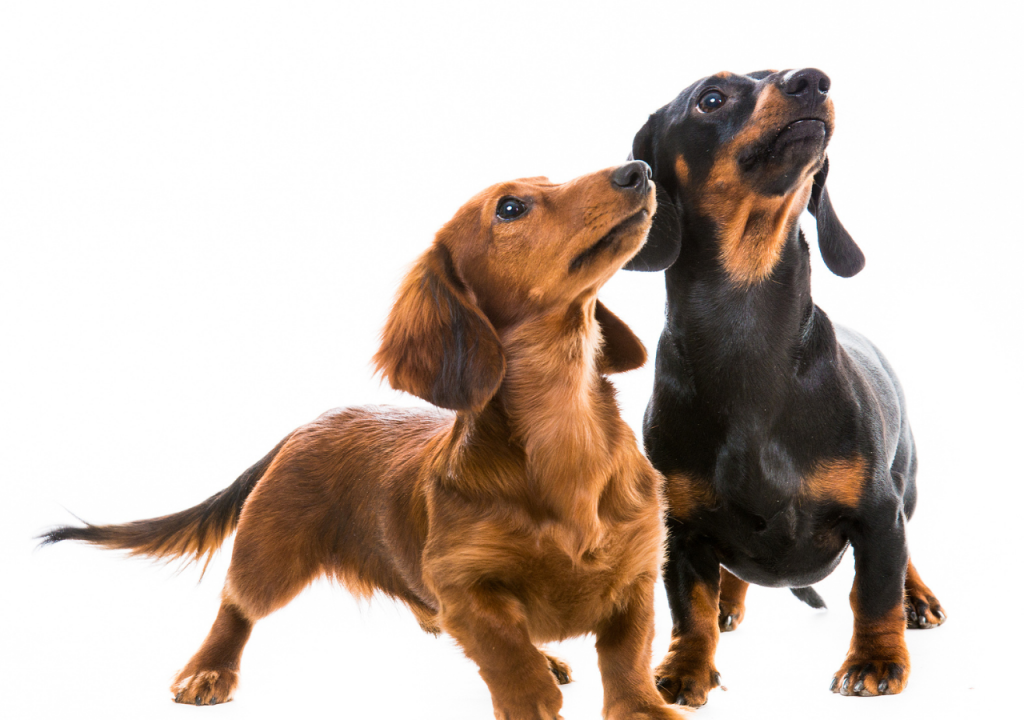
Preparing for Dachshund Neutering Surgery
Preparing your Dachshund for neutering involves several steps to ensure a safe and smooth procedure. First, conduct a pre-surgical vet visit to assess your dog’s health and discuss any potential risks. You’ll likely need to fast your dog the night before surgery and arrange for a quiet recovery space at home.
Your pet will need a safe spot in the house so he can rest and sleep without being disturbed. Therefore, place his bed in a quiet place in the house such as your bedroom. You certainly don’t want to expose him to visits of your friends. Think about your dog as a human who needs a rest after a surgery. Understanding the surgical process and recovery expectations can help alleviate any anxieties you might have.
Post-Surgery Care
Post-operative care is crucial for a quick and uncomplicated recovery. Immediately after surgery, provide a calm environment for your Dachshund to recover. Keep an eye on the incision site for signs of infection and adhere strictly to the vet’s instructions regarding medication and activity levels. Follow-up visits to the vet are essential to ensure proper healing and health.
Ethical Considerations
The decision to neuter involves ethical considerations, such as the impact on the dog’s quality of life and the potential health risks versus benefits. Some argue that neutering is a responsible choice to prevent overpopulation, while others believe it alters an animal’s natural state unnecessarily. Weigh these perspectives carefully, considering both the scientific evidence and your personal values.
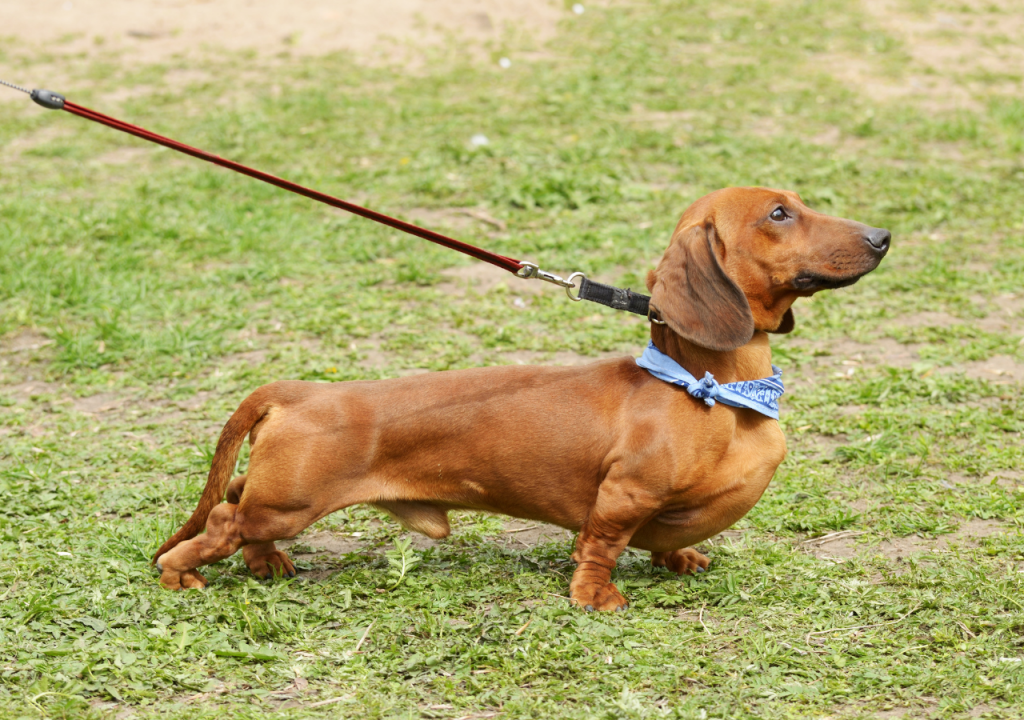
Rare Side Effects After Dachshund Neutering
Although this quite simple surgery for most dogs, there are still some rare side effects that can occur.
1. Anesthetic Reactions
While rare, some dogs may have adverse reactions to anesthesia, such as respiratory issues, cardiac arrest, or allergic reactions. Vets typically perform pre-operative screenings to minimize this risk, but it cannot be entirely eliminated.
2. Postoperative Infections
Infections at the incision site are possible, especially if the site is not kept clean or the dog manages to remove his protective gear and lick or bite the stitches. Signs of infection include excessive redness, swelling, pus, or discharge.
3. Delayed Healing
Sometimes, the surgical site may take longer to heal than expected. This could be due to factors like poor nutrition, underlying health conditions, or inadequate postoperative care. Delayed healing can increase the risk of infection and other complications.
4. Hormonal Imbalances
After neutering, some dogs may experience hormonal imbalances as their bodies adjust to the change. This can occasionally lead to symptoms such as weight gain, changes in coat health, and lethargy. Proper diet and exercise can help manage these issues.
5. Urinary Incontinence
Though more commonly seen in females, urinary incontinence can also occur in neutered males. This can be due to a decrease in urethral sphincter tone, which is sometimes observed after removal of the sex hormones. This side effect is rare and typically manageable with medications.
6. Behavioral Changes
While many behavioral changes are positive, such as reduced aggression and less desire to roam, some dogs may exhibit negative changes. These can include increased fearfulness or anxiety and a decrease in activity levels or alertness.

7. Risk of Hypothyroidism
A rare but documented side effect of neutering in dogs is an increased risk of developing hypothyroidism, a condition where the thyroid gland does not produce enough hormones. This can lead to symptoms such as weight gain, lethargy, and changes in the coat.
8. Bone and Joint Issues
In larger breeds, early neutering has been linked to an increased risk of joint disorders and bone cancer. While Dachshunds are a smaller breed, the timing of neutering should still be considered carefully to minimize any potential impact on bone and joint health.
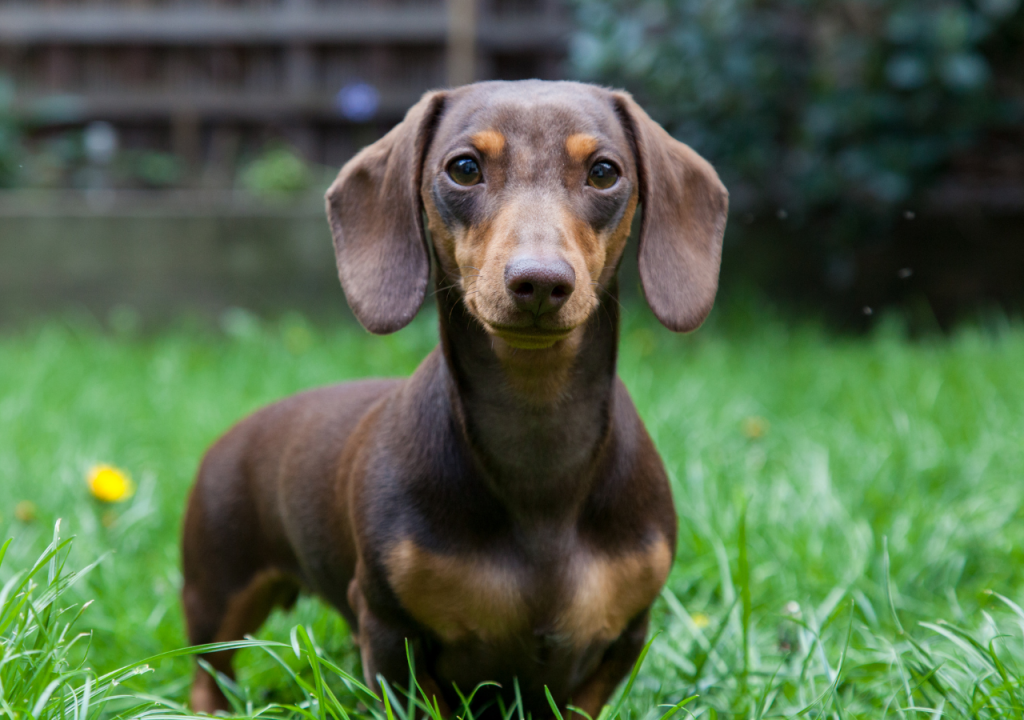
Do Male Dachshunds Calm Down After Neutering?
Yes, male dachshunds often calm down after being neutered, although the extent and nature of the change can vary from one dog to another. Neutering can lead to reductions in several behaviors driven by hormones, such as aggression, territorial marking, and the urge to roam in search of mates. Here’s a breakdown of how neutering might impact a male dachshund’s behavior:
Reduced Aggression
Testosterone plays a significant role in aggressive behaviors in dogs. By neutering a male dachshund, you reduce his testosterone levels, which can lead to less aggression towards other dogs and humans. This change can make him calmer and more amenable to social interactions.
Decreased Urge to Roam
Unneutered males often feel a strong drive to find mates, which can lead them to attempt escapes or wander far from home. Neutering reduces this mating-driven behavior, potentially resulting in a calmer dog that is less likely to roam and more content to stay close to home.
Less Marking and Mounting
Male dogs often exhibit behaviors like urine marking and mounting due to hormonal influences. Neutering can decrease these behaviors, which might contribute to a calmer and more manageable household environment.
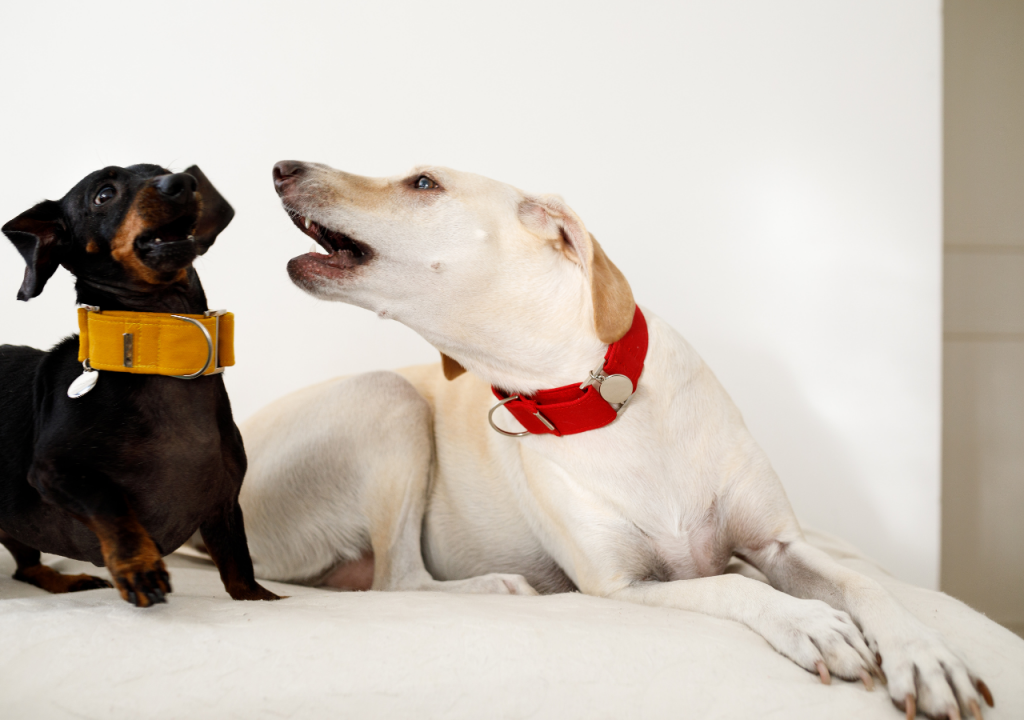
Behavioral Stability
While neutering can help in reducing some unwanted behaviors, it’s not a magic solution for all behavioral issues. Training and consistent behavior management are still necessary to maintain a well-behaved dog. Moreover, if a dachshund has learned certain behaviors, rather than displaying them purely due to hormonal reasons, he might continue with these behaviors post-neutering.
Dachshund Neutering: Wrapping up
Neutering is not just a quick trip to the vet. It’s a decision that can have all sorts of impacts on your little buddy’s health and happiness. Sure, the thought of surgery might make you both a bit nervous, but the benefits often outweigh the risks. Less roaming, reduced aggression, and a lower chance of unexpected puppies showing up on your doorstep—sounds like a win, right? Just remember, every Dachshund is unique, so have a chat with your vet to figure out the best plan for your furry friend.
